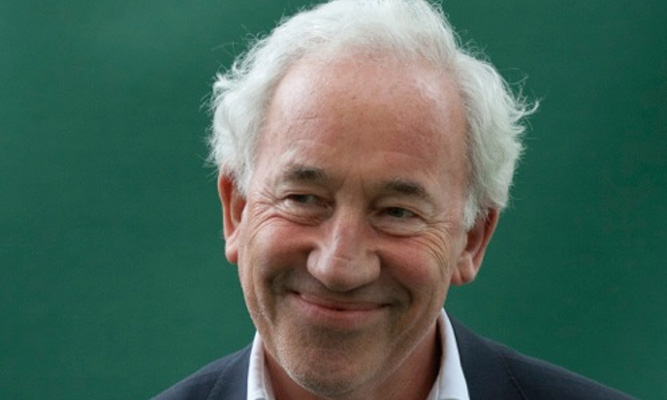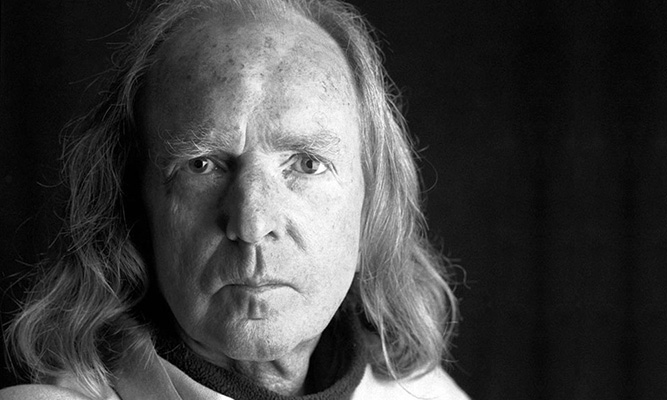BBC Hoddinott Hall, Cardiff, 14 May:
Works by Tarik O’Regan / Xiao Ying / Huw Watkins / Duncan Ward
Pipa – Cheng Yu / Flute – Adam Walker / Narrator – Simon Callow / Conductor – Duncan Ward
St David’s Hall, Cardiff, 17 May:
Works by John Tavener
With the BBC National Chorus of Wales
Cello – Guy Johnston / Cello – Josephine Knight / Soprano – Elin Manahan Thomas / Tenor – Nicholas Mulroy / Conductor – David Atherton
This is the second year in succession that the Vale of Glamorgan Festival has been able to programme two concerts by the BBC National Orchestra of Wales – one apiece around each of the festival’s two featured composers. In 2014, these were Tarik O’Regan and the late John Tavener, for whose culminating tribute at St David’s Hall (May 17), forces were expanded further to include the BBC National Chorus of Wales in a performance of his earth-shaking Requiem of 2007. But the first orchestral concert, at Hoddinott Hall (May 15), proved no smaller in ambition. Here, in a diverse, meaty programme, vigorously conducted by Duncan Ward, we heard two recent works by O’Regan and pieces by a further three composers, including the young Xiao Ying from China.
Ying’s enigmatic The Cloud on the Wishful Side won first prize at a 2013 international competition held in Beijing, at which the VOG Festival Artistic Director, John Metcalf, was invited to adjudicate. The chief judge on that occasion was the composer Qigang Chen, who himself had a piece performed by the BBC NOW at the Vale last year. As it happens, both Chen and Ying also have footholds in France, and Ying’s piece – like Chen’s Enchantements oubliés – certainly bears the impressionist traces. Yet the younger man’s work has the greater virtue of being downright odd. Yes, there are lush added-note harmonies and a dipping into pentatonicism, but these are combined with bold, quirky effects, from the musical – major chords startling out of the blue – to the visual – violin bows waving in the air. Such gestures, and the introduction of a traditional Chinese pipa or fretted lute (played by Cheng Yu) into the orchestra, lent an intriguingly surreal east-west flavour to the five-movement work.
Before that, O’Regan’s Latent Manifest opened the concert with satisfying oomph. This is a short BBC Proms commission from 2010 exploring the illusions and allusions suggested by Bach’s solo violin writing; specifically the ‘hidden harmonies and textures’ of the Sonata No. 3 in C Major (BWV 968). The result is a highly atmospheric sound world entirely different from Bach – if anything, perhaps fleetingly suggestive of John Adams, but ultimately very much O’Regan’s own. From lovely textures exploring major-minor sonorities to cross-accented string passages and swirling melodic figures, the writing is deft and thoughtful, and the placing of a solo violin (Associate Leader Nick Whiting) next to the tuba at the back of the orchestra made for an evocative ‘question and answer’ with the orchestra’s leader (Lesley Hatfield).
Huw Watkins’ Flute Concerto (2014) came hotfoot from its Barbican world première in February, and was performed here by the extraordinary Adam Walker, for whom it was commissioned. Cast in three conventional movements, fast-slow-fast, encompassing sonata and rondo forms, this is a substantial contribution to the repertoire, and showcases Watkins’ fine craftsmanship and ear for orchestral writing as much as the virtuosic capabilities of the flute. Walker’s lithe, agile expertise is astonishing, and he was rewarded with a part both elegant and stretching, wonderfully supported here by a BBC NOW on sparkling form. The work is intricately wrought throughout, with a profusion of melodic invention, rhythmic drive and an impressive attention to motivic detail in its bubbling undercurrents.
Watkins is a musician of prodigious talent (and born in Wales to boot); not ‘just’ a composer, but an internationally-acclaimed pianist. Similarly, Duncan Ward is not ‘just’ an emerging conductor but an award-winning composer, whose short ‘psychedelic dreamscape’, Fumes, opened the second half. This is a busy, more recognisably familiar ‘new music’ piece replete with slap pizzicatos, jazzy syncopations, brassy outbursts and the like. It proved a fun warm-up, though, to the main event: O’Regan’s Suite from the Heart of Darkness taken from the 2011 opera based on the brooding Joseph Conrad novella (with a libretto by Tom Phillips).
The twice Grammy-nominated O’Regan has a long-established reputation for exquisite, finely controlled choral works, but in fact, he works in many genres from the purely instrumental to ballet, dividing his time between New York and his native UK. His opera Heart of Darkness attracted a good deal of critical interest on its première at the Linbury Studio, Covent Garden, and the orchestral suite extracted from it combines vivid orchestral writing (apparently, with very little deviation from the original opera score) with a tersely dramatic part for solo narrator; here the redoubtable Simon Callow, mic’d up and placed within the orchestra.
As ever, O’Regan has given much thought to his compositional approach. Together with Tom Phillips – and notwithstanding the almost Stravinskyan primitivism of some of his music – he seeks not to explore an ethnographic landscape, but rather to tell a story about storytelling. Suites extracted from operas can sound like mere advertisement for the main event, but this piece stands in its own right; memory, lie, confession and, of course, Colonel Kurtz’s famous exposition of ‘the horror’, all feature in a fascinatingly chameleon score with a disquieting sense of the moral ambiguity in Conrad’s dark, colonialist vision.
*
The work’s reception on that debut occasion mirrored the rapture with which Tavener attempts to depict ‘the almost cosmic power of the Mother of God’. In a salute to the Christian Orthodox feast held on October 1, he embodies the Virgin Mary in a solo cello (performed in Cardiff by Guy Johnston), which ‘never stops singing’ against a soaring backdrop of orchestral strings. Such an ecstatic vision of the Virgin is said to have inspired the people of Constantinople to drive off Saracen besiegers in the 10th century – although an understanding of this underlying theology or narrative is clearly not necessary to appreciate the work’s highly charged, meditative properties.
In Cardiff, the audience certainly seemed entranced, responding with palpable warmth at the performance conclusion. Yet I found the combination of soloist and conductor – the distinguished David Atherton – uninspiring. Perhaps it was partly the sonic balance, or lack thereof, from where I was seated, but I found the performance too geometric, and lacking in tonal variation or dramatic arc – indeed, even suffering from intonation woes in places. Regardless of accuracy, this is a work which needs a kind of passionate luminosity to set it ablaze, not to mention keen idiomatic sympathy in the leavening of Tavener’s eight continuous sections. Whilst not poor per se, the performance was disappointing. The orchestra felt unusually muted and there seemed no chance of either it or Johnston sparking the hoped-for intense spiritual alchemy.
If potentially exposing simplicity marks the writing in Tavener’s The Protecting Veil, sheer terrifying mass and volume seem never far away in his later Requiem; a work which might surprise those who have consigned Tavener to some hippy dippy minimalism. Setting words from the Hindu Upanishads, the Qu’ran and Sufi texts, as well as the Roman Catholic Requiem Mass, the work is a reflection of Tavener’s belief in the oneness of all religions in teaching that ‘our glory lies where we cease to exist.’ That is, according to Tavener, ‘when one’s false self is extinguished, the true self shines forth and we have, in a way, become one with God.’ At the Requiem’s most ferocious points, this felt a positively alarming prospect.
Not only does Tavener call on chorus and orchestra (sans woodwind, but with formidable brass, percussion and organ), but he makes huge demands of three soloists: a cello, and soprano and tenor singers. All three parts take their performers to extremes of high register through nigh-on 40 minutes – and all three soloists in Cardiff should be congratulated on giving it everything with only occasional signs of strain: respectively Josephine Knight, Elin Manahan Thomas and Nicholas Mulroy.
Altogether, this was as potent a performance from the massed forces as The Protecting Veil felt uncommitted. And, whilst scruffy in places, it had contrast too; for example, ‘Kali’s Dance’ (the Dies Irae) felt elemental and almost unhinged against the ethereal passages of the two aptly named ‘Still Points’ either side. The Requiem may not be Tavener’s best piece – its sheer unbridledness is as much a weakness as a strength, and the structure teeters somewhat in attempting to bring those mighty forces into balance. But this was certainly a robust and compelling way to end this year’s Vale of Glamorgan Festival, in tribute to a man who devoted his life to writing music which he hoped so fervently would help to bring people and peoples together.



No comments:
Post a Comment